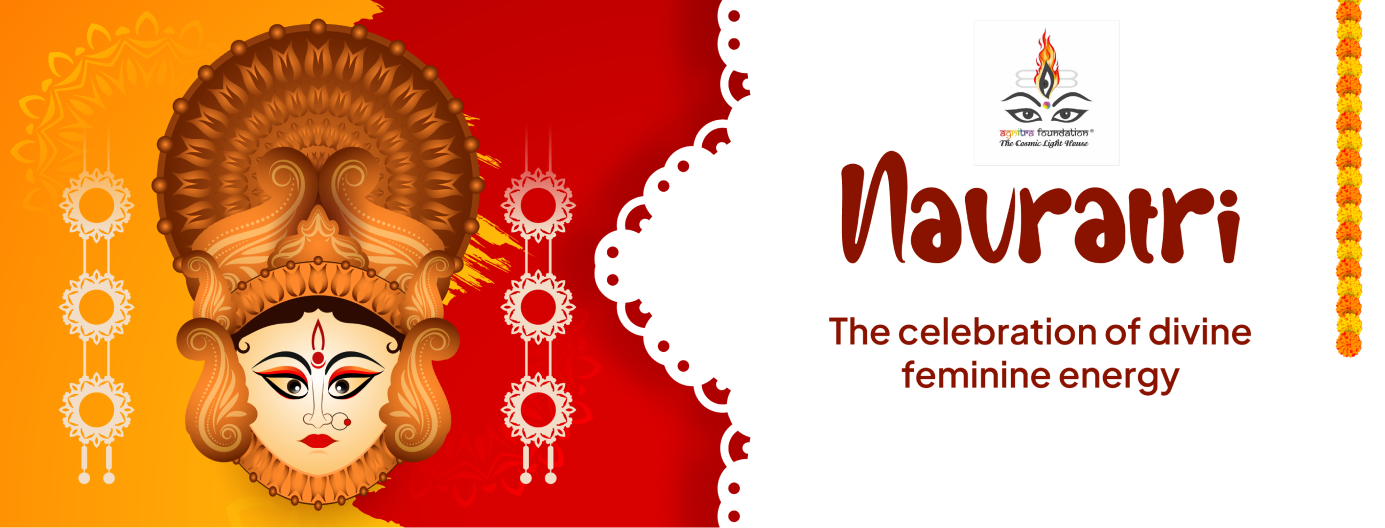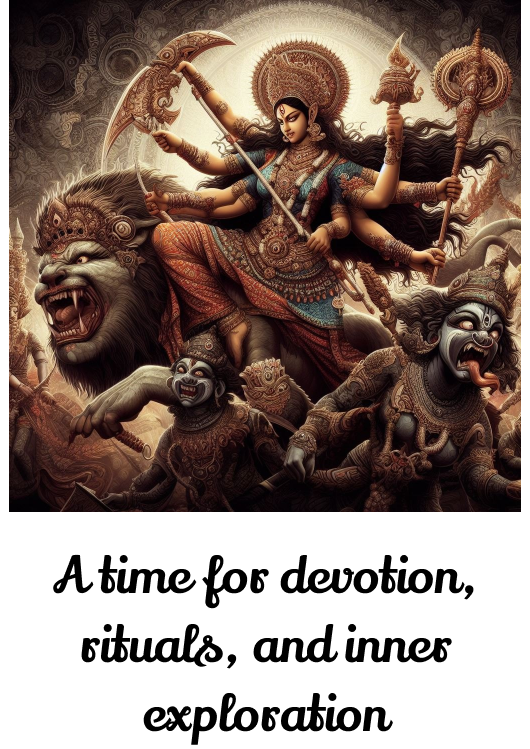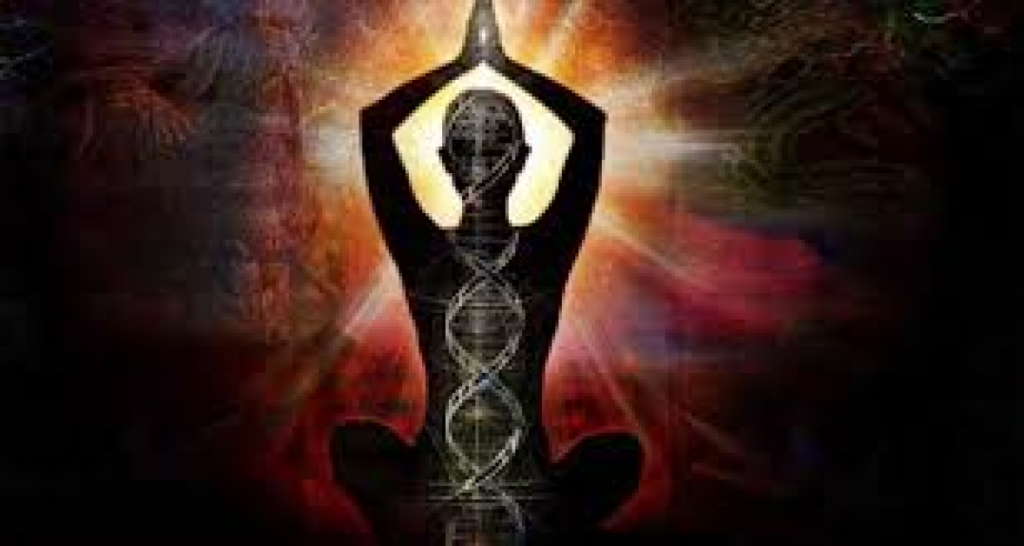Navratri, a celebration of divine feminine energy, holds profound significance in Hindu culture. During this auspicious time, devotees engage in various rituals and practices to honor Goddess Durga and seek her blessings. Among these practices, Tantra stands out as a potent path to spiritual evolution. Under the expert guidance of Dr. Ganesh Dubey from Agnitra Foundation, delving into Tantra during Navratri becomes not just a ritual, but a transformative journey of self-discovery and empowerment.

Table of Contents
Understanding Tantra:
Tantra, derived from ancient Indian scriptures, encompasses a wide range of spiritual practices aimed at channeling divine energy for personal growth and enlightenment. Contrary to common misconceptions, Tantra is not merely about rituals or esoteric ceremonies but entails a holistic approach to life, integrating physical, mental, and spiritual aspects.

- Symbolism of Navratri: Navratri, meaning “nine nights,” symbolizes the triumph of good over evil, marking the battle between Goddess Durga and the demon Mahishasura.
- Tantric Rituals: During Navratri, tantric rituals are performed to invoke the divine feminine energy, or Shakti, through various practices such as meditation, mantra chanting, and yantra worship.
- Integration of Body and Spirit: Tantra emphasizes the integration of body, mind, and spirit, aiming for spiritual awakening and liberation. Navratri becomes a potent time for practicing tantric techniques to harness this energy.
- Power of Shakti: Tantric practitioners believe that Navratri is a time when the cosmic energy of the Goddess is most accessible, allowing devotees to connect deeply with her divine power.
- Transformation and Renewal: Tantric practices during Navratri are geared towards personal transformation, purification, and renewal, helping individuals to overcome obstacles, release negativity, and evolve spiritually.
- Celebration and Devotion: While Navratri is celebrated with colorful dances, music, and fasting, the tantric aspect adds a deeper dimension of devotion and inner exploration, guiding practitioners towards self-realization and divine union.
Significance During Navratri:
Navratri, spanning nine nights dedicated to different manifestations of Goddess Durga, offers a potent backdrop for Tantra practice. Each night symbolizes the triumph of good over evil and the awakening of specific divine energies. Engaging in Tantra rituals during Navratri amplifies spiritual potency, facilitating deeper connections with the divine feminine energy pervading the cosmos.
The Guidance of Dr. Ganesh Dubey:
Dr. Ganesh Dubey, a revered spiritual mentor and founder of Agnitra Foundation, brings profound wisdom and expertise to the realm of Tantra practice during Navratri. With years of dedicated study and practical experience, Dr. Dubey offers invaluable guidance to seekers on harnessing the transformative power of Tantra in alignment with the sacred energies of Navratri.
Why Seek Guidance?
Embarking on the path of Tantra without proper guidance can be akin to sailing in uncharted waters. Dr. Ganesh Dubey’s mentorship provides a structured approach, ensuring that practitioners navigate Tantra’s intricate practices safely and effectively. Here are some compelling reasons why seeking guidance from Dr. Dubey is paramount:
- Navratri as a Celebration of Divine Feminine: Navratri, spanning nine nights, is dedicated to the worship of the divine feminine energy, known as Shakti, in Hindu tradition. Tantra during Navratri focuses on harnessing and channeling this potent cosmic energy for spiritual growth and transformation.
- Integration of Ritual and Spirituality: Tantra integrates ritualistic practices with spiritual teachings, offering a holistic approach to worship during Navratri. It combines external rituals with inner contemplation, emphasizing the union of body, mind, and spirit.
- Invocation of Goddess Durga: Tantric rituals during Navratri aim to invoke Goddess Durga, the embodiment of divine strength and power, through various means such as mantra chanting, meditation, and symbolic offerings. This invocation is believed to facilitate a direct connection with the divine energy of the Goddess.
- Emphasis on Inner Transformation: Tantra views Navratri as a sacred period for inner transformation and self-realization. Practices such as meditation and mantra recitation are not merely external acts but are also meant to purify the mind, dissolve egoic tendencies, and awaken spiritual consciousness.
- Accessing Divine Energy: Tantric practitioners believe that Navratri is a time when the divine feminine energy of Shakti is especially accessible. Through dedicated practice and devotion, devotees seek to tap into this energy to overcome obstacles, transcend limitations, and evolve spiritually.
- Yantra and Sacred Geometry: Tantra utilizes yantras, sacred geometric diagrams representing the divine energy, during Navratri rituals. These yantras serve as powerful tools for meditation and visualization, aiding practitioners in focusing their minds and attuning to the subtle vibrations of the Goddess’s energy.

Transformative Practices:
Under Dr. Ganesh Dubey’s guidance, practitioners engage in a spectrum of transformative Tantra practices during Navratri, including:

Conclusion:
In essence, Tantra during Navratri, under the guidance of Dr. Ganesh Dubey from Agnitra Foundation, transcends mere ritualistic practices to become a profound journey of self-discovery and spiritual evolution. With his expert mentorship, seekers embark on a transformative path, harnessing the divine energies of Navratri to awaken their highest potential and attain spiritual fulfillment.
